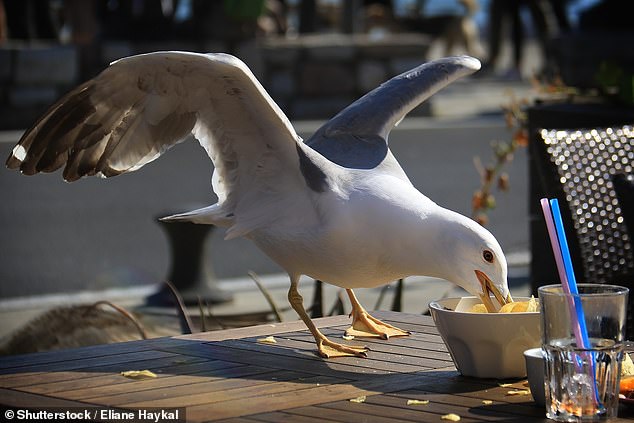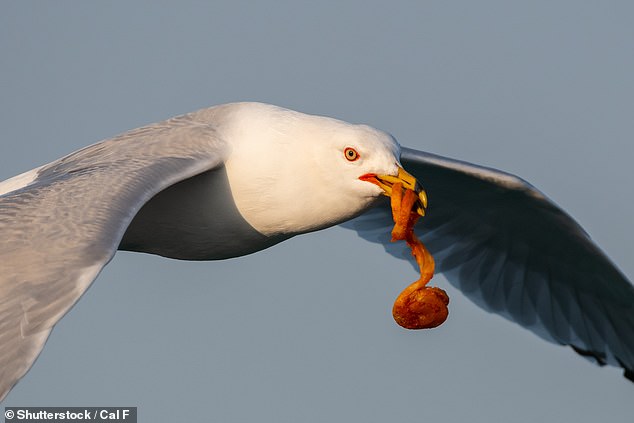- Seagulls are forced to move to urban areas due to the loss of their natural spaces
- Experts say we should view their food-stealing tactics as a sign of intelligence.
<!–
<!–
<!– <!–
<!–
<!–
<!–
Nothing ruins a relaxing trip to the beach more than a seagull swooping down on you and stealing your fries.
But instead of getting angry, You should be impressed by the seagulls’ cunning tactics.
This is according to scientists from the University of Sussex, who say that birds should be considered “charismatic” and not “criminal.”
“When we see behavior that we consider mischievous or criminal, we are almost seeing a really intelligent bird implementing a very intelligent behavior,” said Professor Paul Graham, Professor of Neuroethology at the University of Sussex. bbc.
“I think we have to learn to live with them.”

Nothing ruins a relaxing trip to the beach more than a seagull swooping down on you and stealing your fries. But instead of getting angry, you should be impressed by the seagulls’ cunning tactics.
Professor Graham explains how seagulls are forced to move to urban areas due to the loss of their natural spaces.
From bird flu to depleted fish populations, seagulls have been affected by multiple pressures in nature.
However, in busy cities, birds face new challenges as they are forced to adapt to life alongside humans.
Last year, Professor Graham and his team carried out a study to understand why seagulls steal food from beach dwellers.
The team headed to Brighton seafront, where they placed a blue crisp packet and a green crisp packet in the vicinity of individuals and groups of herring gulls.
Nearby, a human experimenter ate from a packet of blue or green potato chips.
The researchers found that the seagulls turned their heads to observe the experimenter and, in most cases, pecked at the corresponding packet of crisps to try to find food.


Researchers say an obvious solution to the problem is to provide larger, safer containers in areas with many seagulls, and to educate the public not to leave food lying around.
This suggests that birds can learn to imitate humans’ food choices, a key sign of intelligence.
“Although we know that animals learn from each other, we rarely see animals learning from completely different species when it comes to their food preferences,” Professor Graham explained.
“This interaction with humans is relatively modern and what we can see is that seagulls have adapted to thrive in urban environments by mimicking human food choices.
‘The seagulls didn’t like the fries. Over time, they have had to learn to interact with humans to obtain food.
“It is, therefore, a sign of intelligence.”
Researchers say the obvious solutions to the problem are to provide larger, safer containers in areas with many seagulls and to educate the public not to leave food lying around.
“Seagulls are less likely to steal our food if we focus on reducing litter,” Professor Graham added.
“That’s because littering increases the seagulls’ ability to learn about our different food options and what they taste like.”
